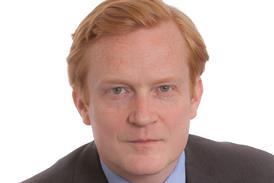The litigation system will ‘cease to function’ unless radical changes are made to costs budgeting, a senior judge has warned.
Master David Cook (pictured), of the Queen’s Bench Division, said the entire costs budgeting process needs to be re-drawn and parties given detailed guidance about what is expected of them.
Cook, a clinical negligence specialist, told a seminar at 7 Bedford Row chambers last week that Sir Rupert Jackson’s vision of a gradual implementation of costs budgeting ‘did not translate into reality’.
Instead, new Civil Procedure Rules came into force in April 2013 with little preparation for barristers and solicitors, limited training for judges, no budgeting pilot in the Royal Courts of Justice and no formal scheme for controlling pre-issue costs.
Cook said he feared the difficulties so far experienced in costs budgeting, particularly in high-value personal injury and clinical negligence cases, were more than simply issues of ‘bedding in’.
The caseload in the Royal Courts of Justice has increased, with clinical negligence claims up from 993 in 2012 to 1,398 in 2014, he said. Yet of the 180 costs budgeting hearings overseen by Cook and his colleague Master Roberts, just a ‘handful’ of budgets have been agreed between both parties.
‘Unless something is done of there is a radical change in culture the system will cease to function,’ said Cook. ‘Defendants must attempt to be more proactive and realistic in their attempts to agree budgets. Claimants must initiate the process of budgetary discussion much sooner.’
Cook said the existence of a market imbalance between rates charged by claimant and defendant lawyers was ‘well known’, resulting in many defendants’ budgets being set unrealistically low and claimants budgeting for ‘every conceivable contingency’.
He conceded that there is a general lack of confidence that defendants will be able challenge what they see as disproportionate costs after after a budget has been set.
Cook said claimants should provide the defendant with a costs estimate of the costs already incurred in investigating the claim, ideally in the letter of claim.
Claimants should also instruct the ‘bare minimum’ of experts to enable breach of duty and causation to be pleaded, with the court deciding on the deployment of additional experts.
Cook lamented ‘repeated failure’ by both sides to complete the directions questionnaire and he encouraged discussions about budgets to start at the ‘earliest opportunity’.
The judge also stated that costs lawyers should be discouraged from attending budgeting hearings as they do not have the knowledge of the case to answer questions on spending to date.
Cook admitted that approaches to budgeting vary from court to court and from judge to judge. He said ‘horror stories’ have emerged of district judges slashing budgets even where phases have been agreed.
‘Given the lack of any formal guidelines for budgeting or guidance from the higher courts this is regrettable but not surprising,' he said.
























11 Readers' comments